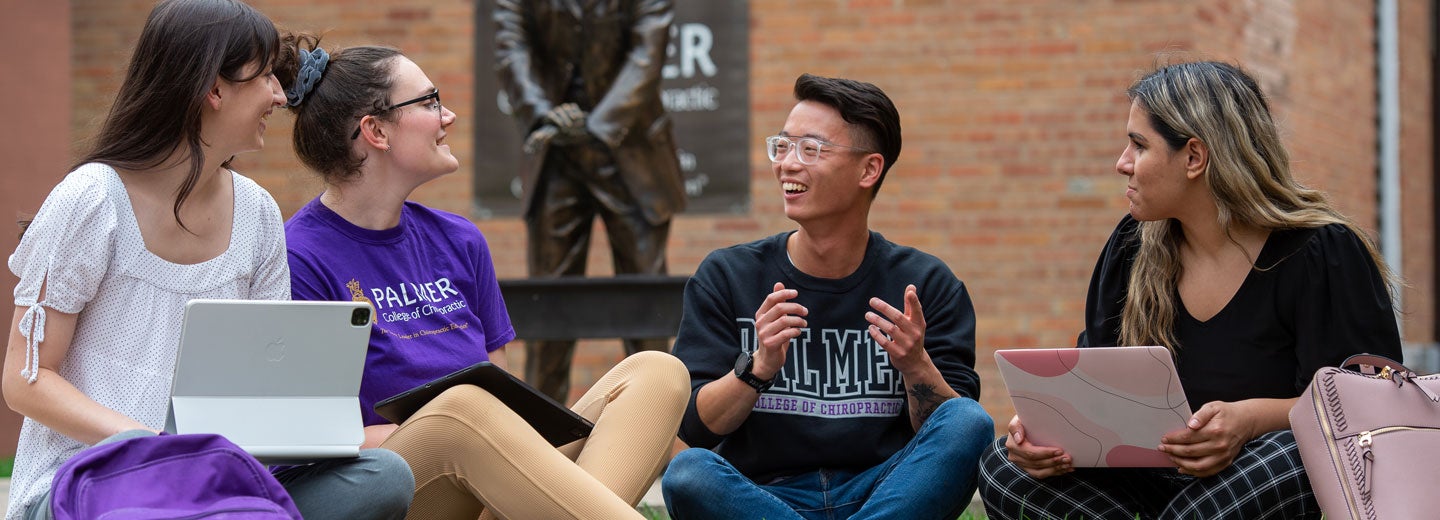- Admissions
- Academics
-
- Student Life
- Research
-
-
- Palmer Center for Chiropractic Research
- About PCCR
- PCCR Faculty and Staff
- Cynthia Long, Ph.D., PStat
- Robert Vining, D.C., D.H.Sc.
- Joel G. Pickar, D.C., Ph.D.
- Stacie A. Salsbury, Ph.D., R.N.
- Zacariah Shannon, D.C., M.S., Ph.D.
- Leah Cafer
- Ann Hileman, B.Phil.
- Sujatha Kedilaya, B.Sc.
- Maranda Kleppe, D.C.
- Jacob McCarey, M.S., B.S.
- Amy Minkalis, D.C., M.S., CCRP
- Elissa Twist, D.C., M.S., FIAMA, CCRP
- Anna Walden-Steward, D.C., M.S.
- Our Research
- Chiropractic Care for Veterans: A Pragmatic Randomized Trial Addressing Dose Effects for cLBP (VERDICT)
- Quality Indicators of Chiropractic Care
- Inter-Institutional Network for Chiropractic Research Project
- Evaluating Spine-Related Low-Value Services in Administrative and Secondary Data Sources
- Assessment of Chiropractic Treatment in Active Duty Military Personnel Studies (ACT)
- Models of Healthy Ageing with Chiropractic Care
- Chiropractic Safety Studies
- Evidence-Based Diagnosis and Clinical Decision Making
- Active Aging for Spine Health: Development of a Novel e-Health Intervention for Older Adults and Doctors of Chiropractic (AASH)
- The Impact of Prior Image Review and Clinical History Information in a Chiropractic Radiology Practice
- Thoracolumbar Fascia Mobility: A Pilot Study (TLFM)
- Collaborative Care for Veterans with Spine Pain and Mental Health Conditions (COCOV)
- Expanding EBCP and Research across the Palmer College of Chiropractic
- Antinociceptive Mechanisms of Spinal Manipulative Therapy for Neuropathic Pain
- Kiernan Chiropractic Care in Rehabilitation at Crotched Mountain
- Collaborative Care for Older Adults (COCOA)
- Chiropractic Integration into Multidisciplinary Healthcare Systems
- Developmental Center for Clinical and Translational Science in Chiropractic (DCRC)
- Technology Assessment
- Mentored Research Projects
- Other Collaborative Publications
- Research Report
- Palmer Center for Chiropractic Research
-
-
- About
-
-
- Compliance
- Office of Compliance
- Compliance Program
- College Policies
- Report a Complaint
- Sexual Misconduct Prevention and Response
- Notice of Nondiscrimination
- Notice of Privacy Practice
- Quick Links for Assistance
- Student Code of Ethics
- Statement of Academic Integrity
- Hazing Awareness and Prevention
- Report Student Misconduct
- Disability Accommodations for Visitors
- Compliance
-

